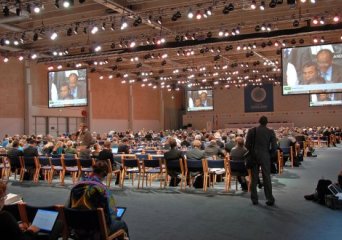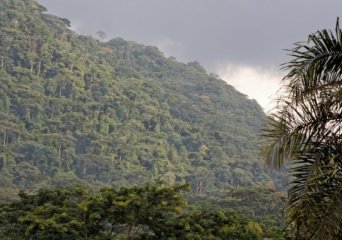
REDD+ research network for science, policy and services
The REDD+ research network for science, policy and services is a collaboration of researchers of the Wageningen University. This network is also known as REDD@WUR.

Governance of REDD+
The idea of REDD+ is simple, but its scope and scale are complex, as it involves various stakeholders at different levels of decision-making. This poses various challenges for policy design and governance.

Monitoring, reporting and verification (MRV)
REDD+ will only work if forest management and conservation activities can be proved to actually reduce carbon emissions. This requires workable monitoring, reporting and verification systems that keep track of changes in forests.

Forest management and climate change mitigation
Researchers at Wageningen UR are studying how REDD+ can help to slow down climate change. For example, through smarter logging methods, better management of tropical peatlands, and by keeping an eye on the dynamics of the ecosystem of the Amazon.

Ecological and social co-benefits
Forests store carbon, but they also play a vital role in the livelihoods of many people and harbour a large share of the world's biodiversity. REDD+ should acknowledge and incorporate these benefits as well.
more news and agenda
REDD+ publications
-
Evaluating the impacts of a large-scale voluntary REDD+ project in Sierra Leone
-
Data and information in a political forest : The case of REDD+
-
Accelerating subnational deforestation and forest degradation reduction efforts (REDD+) : need for recognition of instrumental and relational value interactions
-
How do REDD+ projects contribute to the goals of the Paris Agreement?
-
Performance Assessment of Recent Tropical Forest Monitoring Products for REDD+ Operational Services